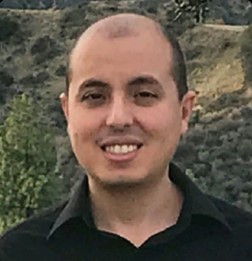*** Please note, each row and course# listed below is a separate, complete course. ***
Understanding Polymers and their Applications
| Course# | Date | Time | Location |
|---|---|---|---|
| 221-1560 | 04/25/2025 - 04/25/2025 | 10:00 AM - 5:00 PM | 240 South Forge Street, Akron, Ohio 44325 Classroom 217 (Located inside the National Polymer Innovation Center) |
Online Registration
If you are a student at the University of Akron, you can sign up for free by sending an email expressing your interest to the following address, giving your email and name: penelo1@uakron.edu.
CEU's: 0.8
Instructor: Dr. Sylvain Seif
Course Overview
This course is intended to introduce undergraduate students to the exciting field of Polymers, with hands-on demonstrations by the instructor portraying how polymers and their fillers are industrially processed to manufacture our everyday-use plastics and their composites; and how these plastics and plastic composites are tested.
Instructor Biography:

Dr. Sylvain Seif has over 15 years of industrial R&D experience in Polymer Engineering, spanning several different areas in the field, and over 12 years of academic teaching experience. He completed a BS in Mechanical Polymer Engineering in 2005 followed by a PhD in Polymer Engineering degree in 2009 from The University of Akron in OH, USA. After graduation, he joined INDEVCO Group, a multinational packaging and consumer goods firm, starting up an R&D Center called “PACT”- Polymer Application Center for Technology- for the entire flexible packaging and compounding divisions of INDEVCO, which consists of 10 manufacturing facilities spread across the globe. He has also taught several engineering courses at the university level, and started R&D collaborations with 5 different universities, refereeing over 30 Masters and Final Year Projects, and being a jury member on all these projects. In 2017, as Senior Technical and R&D Expert at PACT, he helped the INDEVCO R&D Center attain ISO 17025 accreditation for lab testing.
Since 2022, Dr. Seif has been working at an environmentally conscious start-up company, Novoloop, in California, managing the polymer processing lab; having expertise in operating the twin screw compounder, injection molding and co-extrusion cast film machines. Here, he optimized the processing and properties of various durometer TPUs, whereby the polyester polyols are derived from PE recycled waste. He is also very familiar with structure-processing-properties relationships of polymers and their composites, with a strong know-how in lab testing methods for mechanical, rheological, thermal and physical properties. Moreover, Dr. Seif has over 10 academic publications and 3 patents in the polymer field, and has a strong passion for teaching and doing research and development in sustainable solutions.
Common polymer processing equipment including the cast film extruder, injection molder and twin screw extruder will be discussed and showcased in operation:
The Twin Screw Extruder (TSE) is a superior melt mixing machine used to compound a polymer with various fillers and additives, creating intermediary pellets for subsequent usage in molding or extruding various parts.
The Injection Molding (IM) machine utilizes heat and high pressures to inject molten polymer into a mold cavity, which cools and gives shape to the desired thick, rigid part.
The Cast Film Extruder (CFE) consists of a rotating screw inside of a heated barrel, that extrudes polymer melt through a thin die gap before being taken up and wound into a film roll by a water-chilled take-up system.
After the Polymer Processing operations, intermediary and end-products including pellets, films and molded parts will be tested for their mechanical, thermal and fluid mechanical properties, with instruments including:
A Melt Flow Index (MFI) tester measures the flow rate of molten plastic under specific conditions, helping manufacturers assess material quality, consistency, and suitability for various applications, and ensuring proper processing and product performance.
Differential Scanning Calorimetry (DSC) is a thermal analysis technique that measures the heat flow into or out of a sample as its temperature changes, allowing for the study of phase transitions including glass transition, crystallization and melting phenomena.
A Tensile Tester (TS) measures the force or stress required to break a plastic sample specimen, and the extent to which the specimen elongates to that breaking point.
